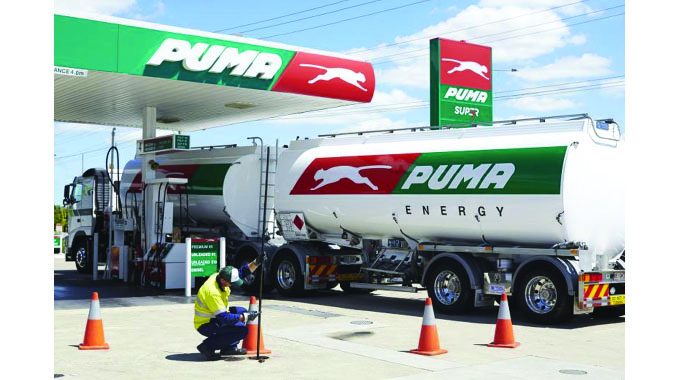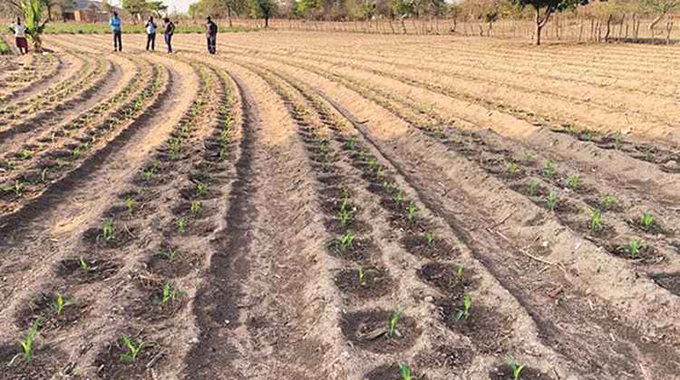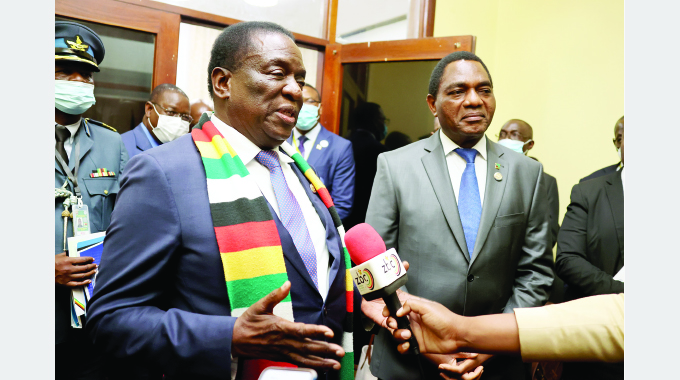Fuel price falls prove 2nd Republic’s people-centred policies

Ivan Zhakata and Tapiwanashe Mangwiro
While every nation that does not produce oil has been affected by rising fuel prices due to global political shocks, the Second Republic led by President Mnangagwa, with its people-centred policies, has been cushioning citizens by ensuring the prices actually go down.
Consumers, economists and businesspeople say the reduction in fuel prices, at least four times within a space of a month, with the latest being on Tuesday this week from US$1,60 to US$1,57, brings more joy to the people because of the positive ripple effects on the economy.
Since July 18, fuel prices have been reviewed downwards four times.
Prior to July 18, the petrol minimum selling price was at US$1,76 per litre, but by Tuesday this week it was selling at US$1,57 per litre.
Diesel, which was at US$1,86 per litre is now at US$1,74 per litre.
The latest drop of fuel prices on Tuesday saw petrol price falling by US$0,03 to US$1,57, while the price of diesel remained at US$1,74 per litre.
In a statement announcing the new pump prices on Tuesday, the Zimbabwe Energy Regulation Authority (ZERA) advised the public and operators that the blending ratio of petrol remained the same.
“Operators may sell the petroleum products below the prescribed prices depending on their trading advantages and should display prices in a prominent place as provided for by the fuel pricing regulations,” it said.
Economist Mr Persistence Gwanyanya said the continued reduction in fuel prices had resulted in the reduction in prices of some basic goods.
“We have seen some basic commodities’ prices going down,” he said. “Prices of edible oil have gone down and that is reflective of the reduction in fuel prices. We also have seen a number of other commodities going down, which is a welcome development. The benefit is now trickling to the consumers.”
Confederation of Zimbabwe Retailers president Mr Denford Mutashu said the reduction in fuel prices, coupled with the tight monetary measures by the Government, were key in stabilising the economy.
“We have seen that prices have stabilised due to fuel prices reduction and other measures,” he said. “In the majority of retailers there is positive stability in prices and the Government must be commended for taking a bull by its horns.
“What we wish to see is increased production of commodities to make the local currency stable. In terms of prices, we are happy with the stability.”
Consumer Council of Zimbabwe executive director Mrs Rose Mpofu commended President Mnangagwa’s administration for its efforts in cushioning the public by ensuring a reduction in fuel prices.
She said her organisation expected the fuel prices to continue falling.
“We want a decrease which will continue to influence a decrease in the prices of basic commodities,” said Mrs Mpofu. “We also want to see a decrease which will continue to have an impact, not only on basic goods, but the economy as a whole.”
Motorists have hailed the Government for the reduction in petrol prices, saying they hoped that the prices will continue to fall.
Mr Lloyd Matare could not hide his joy as he said he was grateful that the price of petrol was falling, much to the advantage of his business.
“I am very happy with what the Government through the Second Republic is doing to improve the lives of the citizens,” he said. “We were getting worried when fuel prices increased to almost US$2, but this massive reduction needs to be applauded. We hope that the petrol will continue to fall.”
Mr Passmore Duri said he felt relieved with the reduction in petrol prices as it will enhance his taxi business.
“I am very happy with the reduction of the petrol price because all my taxis use petrol,” he said. “I am at an advantage in my business. I would like to thank the Government for the decision and as taxi operators, we hope the price will continue to fall so that we can contribute to the improvement of the transport system in Zimbabwe.”
Ms Melody Hokonya said she was grateful for the reduction in petrol prices, but would also like to see a corresponding reduction in diesel prices.
“I am happy that the prices of fuel are falling rapidly, but I would have been much happier if the price of diesel was also reduced to the level of petrol,” she said. “My wish now is to see fuel stations charging in local currency as it was stipulated by the Government that there is an option to pay using our local currency.”
Mrs Precious Chawunza applauded the Government for its thrust to improve the transport sector.
“We are happy that fuel prices are continuing to fall and we hope that bus fares will also fall,” he said. “The falling of fuel prices must ensure efficiency in the transport sector.”
Fuel prices had recently been rising across the world due to supply interruptions caused by the geopolitical developments in Eastern Europe, where Russia is has a special military operation in Ukraine.
Energy and Power Development Minister Zhemu Soda yesterday said ethanol blending was open for anyone who has the capacity to produce consistently.
Such remarks came as the ministry was being accused of blocking investors from entering the ethanol industry, while allegedly protecting ethanol producer Green Fuel.
Speaking at the official opening of Puma Energy Zimbabwe Highland Park outlet, Minister Soda said: “Although Green Fuel is the main producer, the industry is open to other potential investors and no barriers exist.”
There are two ethanol producers in the country, Green Fuel and Fuel Ethanol Company of Zimbabwe (FECZ), a joint venture between the National Oil Company (NOIC) and Triangle Private Limited.
Minister Soda said: “In addition to the two known ethanol producers, a new and potential investor has shown interest in establishing cassava plantation for the production of ethanol.”
It is understood that Government has already given the investor the requisite support and now awaits the project commencement in Mashonaland Central.
Government is encouraging more players to invest in ethanol production in order to improve security of supply and sustain the preferred E20 blending level.
This comes as Green Fuel and FECZ earlier in the year failed to produce enough ethanol, forcing energy authorities to drastically reduce the petrol blending ratio from E10 to E0, as the country manoeuvres to build new storage tanks.
ZERA chief executive officer Mr Eddington Mazambani in January told The Herald that ethanol production had been liberalised.
The coming in of new investors is of great benefit as it creates employment through the establishment of plantations and also saves the country by containing the fuel import bill.
Bio-diesel production has also been in the pipeline and government has now found a partner in which they are exploring the avenue.
Government has, through Finealt Engineering, been conducting research on bio-diesel to enhance the import substitution strategy whilst at the same time addressing its Nationally Determined Contribution (NDCs) to the reduction of the carbon footprint.
“Jatropha plantations, like the sugarcane plantations, are carbon sinks that reduce the amount of carbon in the air, through the absorption of carbon dioxide at the same time producing bio-diesel required for blending. In that regard, the country targets to reach two percent blending of diesel with bio-diesel by year 2030,” Minister Soda said.
The transportation of fuel from Beira to Zimbabwe through road tankers, which is common in this country, does not only have adverse effects to the road infrastructure, but also poses a risk to the environment and human life through pollution and possible road traffic accidents.
Speaking on the matter, Minister Soda said: “I am, therefore, encouraging all of the industry participants to use the pipeline infrastructure as opposed to road, which apart from risks associated, have relatively high rates.”
According to ZERA, the existing pipelines from Beira, through Feruka to Harare, can transport up to 6 million litres of combined product per day and efforts are already underway to upgrade that capacity to make Harare a hub for fuel transportation.











Comments